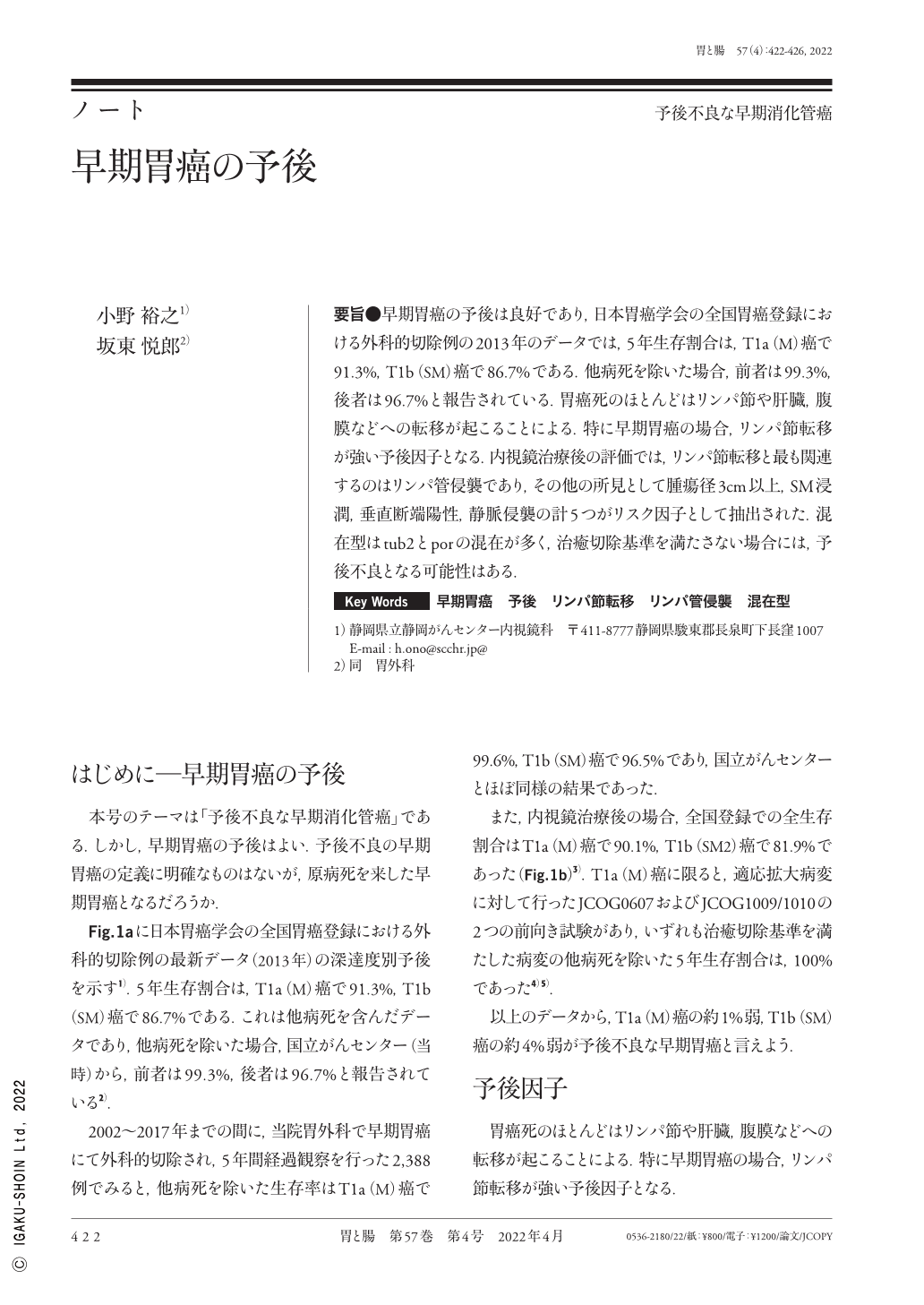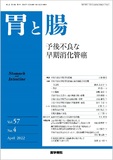Japanese
English
- 有料閲覧
- Abstract 文献概要
- 1ページ目 Look Inside
- 参考文献 Reference
要旨●早期胃癌の予後は良好であり,日本胃癌学会の全国胃癌登録における外科的切除例の2013年のデータでは,5年生存割合は,T1a(M)癌で91.3%,T1b(SM)癌で86.7%である.他病死を除いた場合,前者は99.3%,後者は96.7%と報告されている.胃癌死のほとんどはリンパ節や肝臓,腹膜などへの転移が起こることによる.特に早期胃癌の場合,リンパ節転移が強い予後因子となる.内視鏡治療後の評価では,リンパ節転移と最も関連するのはリンパ管侵襲であり,その他の所見として腫瘍径3cm以上,SM浸潤,垂直断端陽性,静脈侵襲の計5つがリスク因子として抽出された.混在型はtub2とporの混在が多く,治癒切除基準を満たさない場合には,予後不良となる可能性はある.
Early gastric cancer has good prognosis. According to the 2013 data from the Gastric Cancer Society National Gastric Cancer Registry for surgical resection cases, the 5-year survival rates are 91.3% and 86.7% for T1a(M)and T1b(SM)cancers, respectively. After excluding deaths from other diseases, the former rate is 99.3% and the latter is 96.7%. Most deaths due to gastric cancer are caused by metastasis to the lymph nodes, liver, and peritoneum. Lymph node metastasis is a strong prognostic factor, especially in early gastric cancer. An evaluation after endoscopic treatment showed that lymphatic invasion was the most associated with lymph node metastasis, followed by five other risk factors, including tumor diameter of ≥3cm, SM invasion, positive vertical margins, and venous invasion. The histologically mixed type is often a combination of tub2 and por, and when the criteria of curative resection are not met, the prognosis may be poor.

Copyright © 2022, Igaku-Shoin Ltd. All rights reserved.


